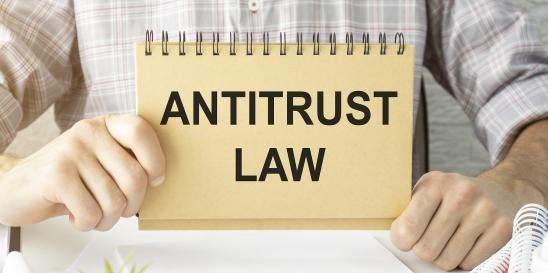Anyone who has ever received a civil investigative demand, subpoena, second request, voluntary access letter, or other form of compulsory process from a federal antitrust regulator knows that the government’s standard definition of “document” is wide ranging and seemingly encompasses every form of written communication. But must recipients also preserve and produce responsive communications generated by collaboration tools like Microsoft Teams and ephemeral messaging applications such as Slack? For as long as these technologies have existed, the government’s answer has always been yes, but this may not have been well understood or followed by recipients of government demands.
On January 26, the Federal Trade Commission (FTC) and the Antitrust Division of the Justice Department (DOJ) cleared up any misunderstanding that may have previously existed by jointly announcing updates to their standard preservation letters and specifications for legal processes to address the growing use of collaboration tools and ephemeral messaging platforms in the modern workplace.
The updated guidance specifically mentions popular platforms such as Slack and Microsoft Teams, but also includes any other collaboration tool or ephemeral messaging platform used, and further includes social media accounts like X, formerly known as Twitter, Facebook, or Snapchat. These updates apply to second requests, voluntary access letters, and compulsory legal processes, including grand jury subpoenas. Simply stated, if you receive compulsory process from the FTC or the Antitrust Division of DOJ, you must preserve and produce all responsive documents, including those that are intended to “disappear” quickly. Failure to do so can have serious consequences, including obstruction of justice charges.
This does not mean that companies must change their document retention or destruction policies in the absence of compulsory process, but as soon as such process is issued – or companies become aware that such process is likely to be issued – they need to “lock down” the documents, regardless of the technology used to create the documents. For example, if a company involved in a merger becomes aware that a second request will be issued but fails to suspend the “auto delete” function of its Microsoft Teams collaboration platform, it may find itself in hot water that runs deeper than the substance of the merger investigation itself.
The updated guidance is the clearest signal to date that the antitrust agencies are increasingly focusing on such evidence to conduct investigations and taking a very dim view of any efforts perceived to “hide” such evidence. While this update does not fundamentally change the legal framework regarding preservation of document evidence, the DOJ and FTC emphasize the legal responsibility of companies and individuals to preserve documents when involved in government investigations, ensuring compliance with obligations even when using new collaboration and information-sharing tools.
The updates clarify that preservation responsibilities extend to new methods of collaboration tools, such as ephemeral messaging applications like Slack, Microsoft Teams, and Signal. As such, the updated Model Second Request specifically introduces definitions of “Collaborative Work Environments” and “Messaging Applications.” Further, the Model Second Request now outlines in specific detail what information needs to be provided regarding the Company’s policies and procedures relating to the retention and destruction of documents, including any specific policies regarding chats, instant messages, text messages, and other methods of communication.
The update is seen as a response to companies not consistently retaining documents covered by government investigations or enforcement actions, and in cases of non-compliance, the FTC has the authority to move for civil spoliation sanctions and may refer cases to criminal prosecutors through the Bureau of Competition’s Criminal Liaison Unit for obstruction of justice charges.
From a policy perspective, this latest update complements the agencies’ broader “carrot and stick” approach that will likely be deployed in future antitrust investigations. While this announcement certainly presages tougher enforcement actions (“stick”) for companies’ failure to preserve and produce ephemeral and encrypted information, the agencies – particularly the DOJ – have also emphasized the importance of voluntarily offering such information in the course of cooperating with investigations and indicated that such cooperation will favorably influence how investigations are resolved in the future (“carrot”). Therefore, it will be important for companies to evaluate their document preservation policies and efforts with an eye toward both positive and negative impact that could flow from their practice.
The overall takeaway is that companies must have detailed policies to preserve data from third-party messaging applications, including data from ephemeral or encrypted messaging applications, and must act swiftly to quarantine such data before it “disappears.” The focus on collaboration and information-sharing tools reflects the agencies' recognition of the changing landscape of modern business communication.









 i
i


